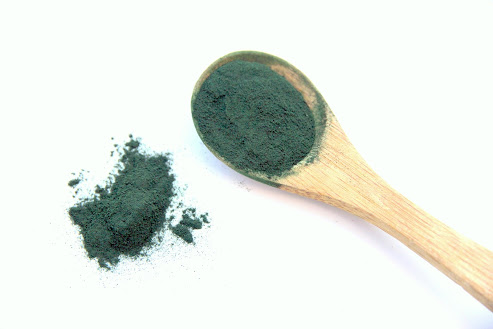Many of the best foods have been perfectly crafted by Mother Nature herself. They hold a variety of hidden health benefits and offer vitamins and minerals that are good for the body and for overall wellbeing.
Spirulina is one such food that has been perfectly crafted by nature to offer necessary nutrients to the body. This food is cultivated across the globe and is also widely used as a dietary supplement that comes in various forms such as tablets, powders, and even flake form. To glean a full understanding of this superfood and all it offers, keep reading.
What is Spirulina?
Spirulina is a cyanobacterium that, for the most part, can be safely consumed by both humans and animals. In fact, it has been used and eaten by various cultures throughout history and was a favorite staple of the Aztec and Mayan peoples for centuries.
Spirulina comes into two main species and can be eaten as both a whole food or a dietary supplement. Commonly, it is used as a feeding supplement for aquarium, aquaculture, and poultry industries due to its high nutritional value.
It is also commonly referred to as blue-green algae and describes a very wide and diverse community of plant-like creatures that can be found in salt water and in some large bodies of fresh water such as lakes and large ponds. Most commonly, however, spirulina is found in tropical and subtropical waters that sport a high salt content. Due to the influx of the blue-green algae, they give the water a dark, greenish appearance. However, many factors can affect the types of spirulina found in these waters.
Spirulina products can also be grown under certain controlled conditions when used as a supplement or dietary aid. When grown in its natural setting, however, there is a high risk of this blue-green algae being contaminated with different types of bacteria, poisons, and even some metals. Before consuming spirulina, it is best to be sure, that it has been tested and found free of the listed contaminants.
Nutritional Value of Spirulina
Dried spirulina is an excellent source of protein. It contains up to 60% of complete protein and contains all of the essential amino acids, though with lesser amounts than those found in eggs, milk, and meat. However, the protein content in spirulina far surpasses that of typical plant proteins, such as those found in legumes.
Spirulina is also a notable source of B vitamins, calcium, iron, manganese, phosphorous, zinc chromium, potassium, and vitamins A, E, and C, among many other nutrients and minerals. Due to its high nutritional value, spirulina has been used to treat a number of bodily issues.
Spirulina also contains high levels of beta-carotene, which helps determine how the cells communicate with one another. Research suggests that beta-carotene can help lower cholesterol, reduce the size of tumors, and even treat wounds and help them heal faster. What’s more, natural sources of beta-carotene such as spirulina is highly beneficial because they are absorbed into the body much more easily than synthetic beta-carotene. This means that it can’t build up in the body and become toxic.
Benefits Of Spirulina
Spirulina has a number of health benefits that are noticed almost immediately after ingestion.
- Whether eaten as a whole food or taken as a dietary supplement, spirulina has been known to provide an almost instant boost of energy, help endurance, and even reduce feelings of sluggishness and fatigue.
- It is also an excellent food to help boost and improve the immune system, which helps you fight off a number of diseases and illness including cancer.
- Spirulina also provides support for heart health, the kidneys, and the liver. It is a natural blood-oxygenator and detoxifier, which helps the body cleanse itself of impurities that can cause feelings of fatigue, chronically low energy, illnesses, and other health complications.
- Due to its high volume of antioxidants, spirulina can also help balance the body’s pH balance which helps reduce pain and inflammation.
- In addition to these many uses, spirulina is also a natural appetite depressant, which makes it a helpful aid for weight loss.
- It improves the body’s digestive system and helps prevent snacking between meals, which can mean a faster, healthier metabolism and a leaner, stronger body.
Add Spirulina To Your Diet ASAP
With all the many benefits of spirulina, it seems only natural to add nature’s perfect food to your everyday diet. Spirulina is a power packed food that is inexpensive, easy to obtain, and easy to store. In fact, it has a shelf life of up to 5 years, making it as durable as it is nutritious.


No comments:
Post a Comment